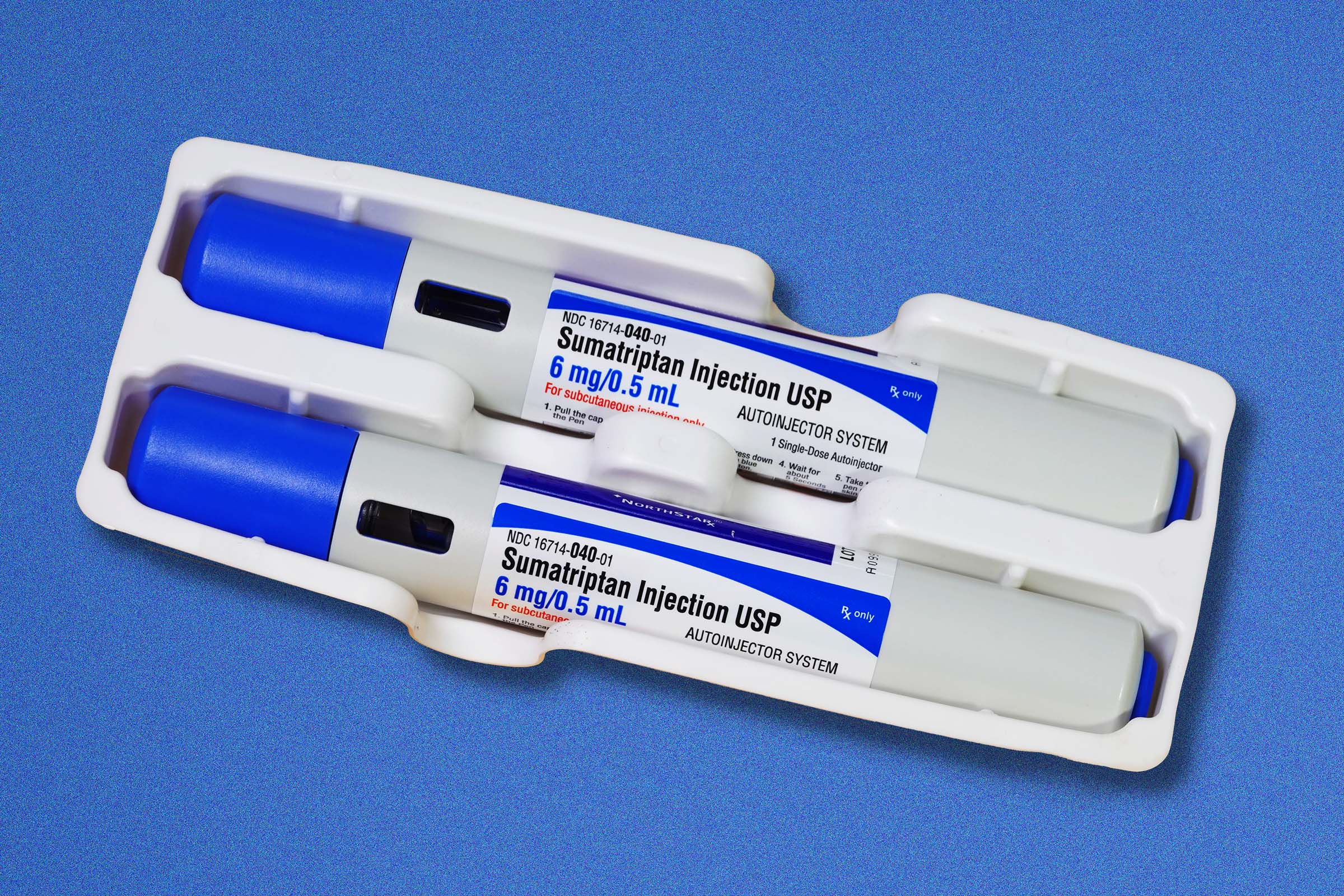A University of Oxford study suggests that triptans are the most effective migraine treatment, outperforming newer, pricier options.
For decades, inexpensive painkillers like aspirin and ibuprofen, along with triptans—drugs that narrow blood vessels in the brain to block migraine-triggering chemicals—have been prescribed for migraines. Recently, a new generation of more expensive migraine drugs called gepants, which block the release of a protein involved in pain, have also emerged.
The Oxford study researchers concluded that triptans should be made more widely available. “The most effective triptans should be considered as preferred acute treatment for migraine and included in the World Health Organization’s Model List of Essential Medicines to promote global accessibility and uniform standards of care,” they wrote.
Best Relief for Migraine Sufferers
The comprehensive
analysis published in the BMJ on Sept. 18 found that triptans outperform all other migraine medications.
The study examined 137 randomized controlled trials involving nearly 90,000 participants who received one of 17 migraine drugs or a placebo. It analyzed triptans and newer treatments known as gepants, which include ubrogepant (Ubrelvy) and rimegepant (Nurtec ODT). These newer drugs, which block proteins called CGRP that are released during a migraine attack, can cost around $1,000 for a month’s supply.
Four triptans—eletriptan (Relpax), rizatriptan (Maxalt), sumatriptan (Imitrex), and zolmitriptan (Zomig)—performed best, the study said. Depending on the prescribed medication, a month’s supply can cost anywhere from $10 to $600. All drugs were compared to paracetamol (Tylenol) and non-steroidal anti-inflammatory medications like ibuprofen (Advil, Motrin) and naproxen (Aleve).
According to the findings:
- Best for lasting relief (up to 24 hours): eletriptan and ibuprofen
- Most effective for 2-hour relief: eletriptan
- Followed by: rizatriptan, sumatriptan, zolmitriptan
The newer drugs were found to be about as effective as paracetamol and NSAIDs, while lasmiditan (Rayvow), which belongs to a class of medications called ditans and may cause drowsiness, offered similar results, the study said.
All tested drugs were shown to be more effective than placebos for pain relief within two hours, with most providing sustained relief for up to 24 hours, except for paracetamol and naratriptan (Amerge).
“We found that all the drugs licensed are better than placebo, but some are better than other active drugs for the acute treatment of migraine, which is something new,” lead author Dr. Andrea Cipriani, a professor of psychiatry at the University of Oxford, said at a press conference.
“Our findings pave the way to a precision medicine approach in clinical practice and should be used to help inform future guidelines about treatments for acute migraines to ensure that patients receive the best possible care,” he added.
Peter Goadsby, director of NIHR Clinical Research Facility professor of neurology, King’s College London, added, “This is good quality research with the main take home message being triptans are under-utilised for migraine being supported by the data here that is in keeping with other existing evidence,” in a statement.
The Case for Triptans
The researchers recommend that doctors prescribe triptans as the first-line treatment for migraines.
Triptans “are currently widely underused,” according to the study. Despite their effectiveness, only 16.8 to 22.7 percent of Americans opt for them. Safety concerns contribute to this underuse, however, the study notes that results from previous research are difficult to interpret.
Moreover, studies assessing high doses of eletriptan and sumatriptan injections showed no significant narrowing of blood vessels during heart tests, indicating the need for further research.
“Our network meta-analysis suggest that the best performing triptans should be considered the treatment of choice for migraine episodes owing to their capacity for inducing rapid and sustained pain freedom, which is of key importance for people with migraine,” the authors wrote. They suggest considering lasmiditan, rimegepant, and ubrogepant after second-line drugs like ibuprofen have been tried.
Currently, the American Academy of Neurology and the American Headache Society recommend frovatriptan (Frova) for short-term prevention of menstrual-associated migraines, with naratriptan and zolmitriptan classified as lower-level recommendations. Among triptans, only sumatriptan is included in the Model List of Essential Medicines.
Understanding Migraine Triggers
More than a billion people worldwide suffer from migraines. The term “migraine” is derived from the Greek word “hemicrania,” meaning “half-head,” reflecting how the pain often affects one side.
Migraines are more than severe headaches—they can leave people confined to dark rooms, significantly affecting their daily lives. The condition is the leading cause of disability among women aged 15 to 49.
Some people experience an “aura” before an attack, which may include visual disturbances or sensory changes. Recognizing common triggers can help manage migraines.
According to the American Migraine Foundation, triggers include:
- Stress: Affects nearly 70 percent of migraine sufferers. Coping strategies include relaxation techniques and maintaining consistent sleep schedules.
- Sleep irregularities: An irregular sleep schedule increases migraine risk. Aim for seven to eight hours of sleep each night.
- Hormonal changes: Many women experience menstrual migraines due to hormonal fluctuations. Discussing treatment options with a health care provider can be beneficial.
- Diet: Certain foods, like aged cheeses and chocolate, can trigger migraines. Keeping a food diary can help identify specific triggers.
Other triggers include dehydration, caffeine and alcohol use, weather changes, light and odor sensitivity, and medication overuse.













